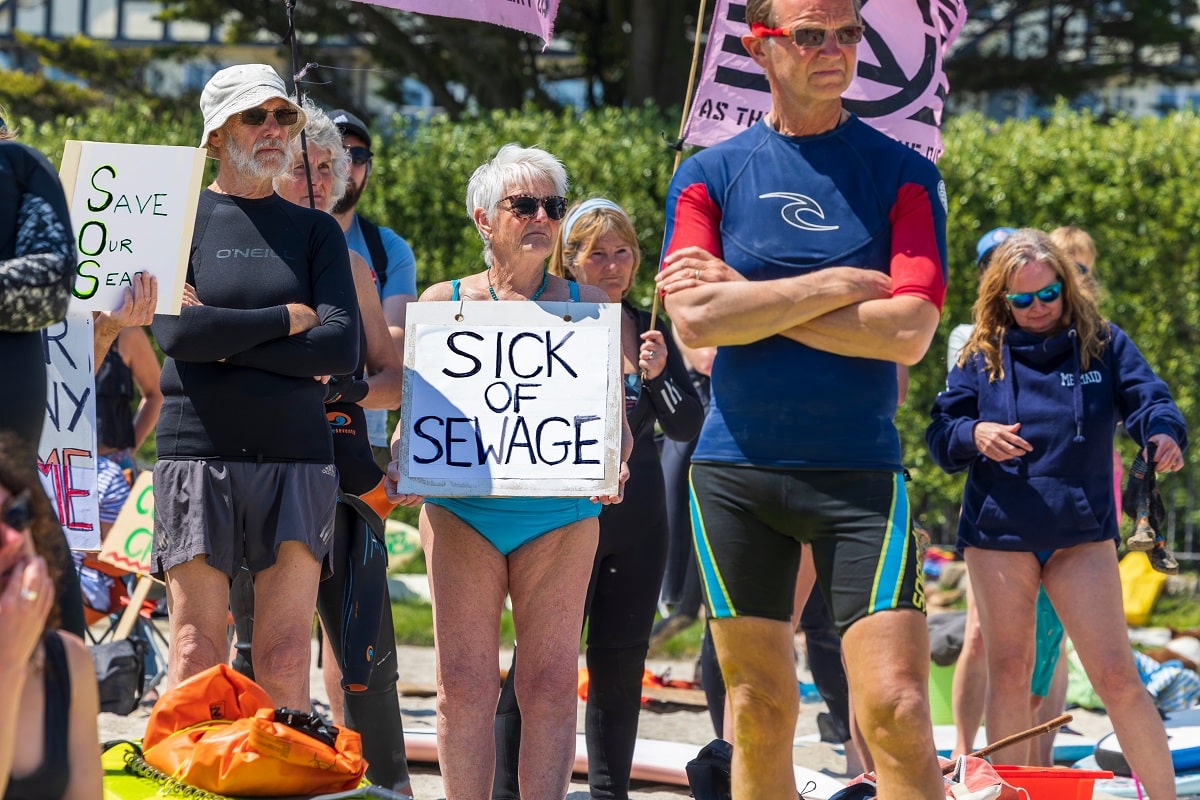The UK Government faces legal challenges over an alleged attempt to relax sewage regulations for housebuilders, prompting concerns over environmental impact and accountability. Here’s the full story.
What Environment?
It’s safe to say that Britain’s current Conservative government doesn’t seem to care much about the environment.
From Rishi Sunak rolling back on the net zero targets to failure to tackle particulates in the air, which lead to lung diseases, taking care of the planet we all live on does not seem near their top priorities.
This was made all the more clear recently after the government was embroiled in a legal dispute over proposed changes to sewage regulations for housebuilders in England.
Sneaking In
Campaigners against the proposals allege that the government is trying to sneak in alterations previously defeated in the House of Lords through a “backdoor” approach.
As things currently stand, housebuilders in environmentally sensitive areas such as the Lake District and Norfolk Broads must stick rigidly to regulations to prevent water pollution with sewage.
While these regulations, initially established by the Conservative Party’s favourite bogeyman, the EU, require developers to either upgrade infrastructure or purchase biodiversity credits to offset any additional pollution, which may seem like reasonable steps to protect Britain’s natural beauty, the Conservative Party is having none of it.
Levelling Up
In the past year, the Levelling Up Secretary Michael Gove proposed an amendment to the Levelling Up and Regeneration Bill.
This amendment sought to remove the existing environmental directive from the statute book, which would effectively permit developers to bypass existing sewage pollution rules, allowing more sewage into waterways and onto coastlines dealing with sewage pollution for the last few years.
However, the House of Lords rejected this amendment on two separate occasions, citing their deep concerns over the environmental impact of this change to the rules.
Secret Laws
Not one to be put off by something as trivial as the institution of democracy or environmental protections, the government has been accused of attempting to reintroduce the amendment covertly.
This deeply damaging accusation stems from issuing a new notice, which requires planning authorities to assume that sewage infrastructure upgrades by water companies will be completed by April 2030, regardless of whether they have been or not.
Wild Justice
The campaign group Wild Justice, working with the law firm Leigh Day, has initiated plans for a judicial review of the government’s actions.
They argue that the government’s notice needs mechanisms to verify sewage infrastructure improvements, allowing housebuilders to continue polluting the waterways with sewage after 2030.
Ricardo Gama, a solicitor with Leigh Day, expressed concern over the government’s approach, stating that it constitutes an apparent attempt to circumvent legal protections for vital natural habitats.
Government Criticism
The shadow environment secretary, Steve Reed MP, also criticized the Conservative government’s handling of the situation.
Reed accused the government of exacerbating the housing crisis and jeopardizing river health by proposing changes that could lead to increased sewage pollution.
Reed outlined Labour’s commitment to addressing the housing shortage while prioritizing environmental preservation.
This prioritization of environmental preservation would shock many Labour supporters, considering Labour’s recent backtracking on their £28 billion green prosperity plan.
Despite this, Reed further advocated streamlining the planning process to facilitate construction while safeguarding rivers from pollution.
Two Steps Back
In response to the criticism, a government spokesperson defended the changes introduced in the Levelling Up and Regeneration Act, emphasizing their potential to reduce pollution through wastewater treatment upgrades.
They asserted that these upgrades would benefit the environment while easing development constraints.
This dispute over sewage regulations should come as no surprise as it does from a government that seemingly could not care less about the environment.
Outclassed
The delicate balance between housing development and environmental conservation is one in which the government seems all too happy to regularly and forcefully apply its thumb to the scale.
As legal proceedings continue, the amount of damage the British public is willing to accept to the nation’s natural resources to build more desperately needed housing remains to be seen.
More Articles Like This…
Broken Britain: 12 Reasons Behind the UK’s Decline
Say the Unsayable: 10 Occasions When Farage Spoke His Mind About Britain
The post Campaigners Claim Pollution Deregulation Is Getting in Through the Back Door first appeared on Edge Media.
Featured Image Credit: Shutterstock / JMundy.
Grant Gallacher is a seasoned writer with expertise in politics and impactful daily news. His work, deeply rooted in addressing issues that resonate with a wide audience, showcases an unwavering commitment to bringing forth the stories that matter. He is also known for satirical writing and stand up comedy.

